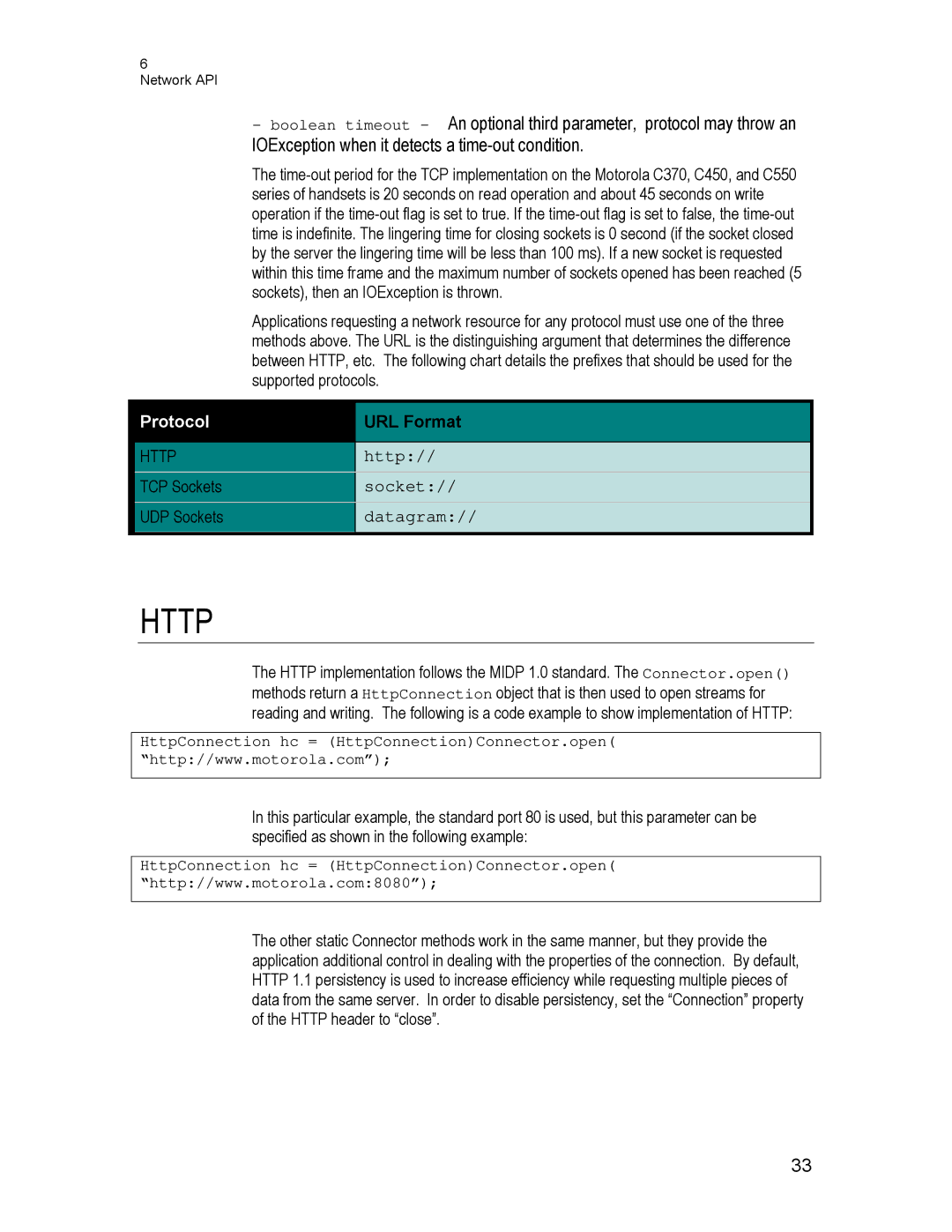
6
Network API
|
| - boolean timeout – An optional third parameter, protocol may throw an | |
|
| IOException when it detects a | |
|
| The | |
|
| series of handsets is 20 seconds on read operation and about 45 seconds on write | |
|
| operation if the | |
|
| time is indefinite. The lingering time for closing sockets is 0 second (if the socket closed | |
|
| by the server the lingering time will be less than 100 ms). If a new socket is requested | |
|
| within this time frame and the maximum number of sockets opened has been reached (5 | |
|
| sockets), then an IOException is thrown. | |
|
| Applications requesting a network resource for any protocol must use one of the three | |
|
| methods above. The URL is the distinguishing argument that determines the difference | |
|
| between HTTP, etc. The following chart details the prefixes that should be used for the | |
|
| supported protocols. | |
|
|
|
|
| Protocol |
| URL Format |
|
|
|
|
| HTTP |
| http:// |
| TCP Sockets |
| socket:// |
| UDP Sockets |
| datagram:// |
|
|
|
|
HTTP
The HTTP implementation follows the MIDP 1.0 standard. The Connector.open() methods return a HttpConnection object that is then used to open streams for reading and writing. The following is a code example to show implementation of HTTP:
HttpConnection hc = (HttpConnection)Connector.open( “http://www.motorola.com”);
In this particular example, the standard port 80 is used, but this parameter can be specified as shown in the following example:
HttpConnection hc = (HttpConnection)Connector.open( “http://www.motorola.com:8080”);
The other static Connector methods work in the same manner, but they provide the application additional control in dealing with the properties of the connection. By default, HTTP 1.1 persistency is used to increase efficiency while requesting multiple pieces of data from the same server. In order to disable persistency, set the “Connection” property of the HTTP header to “close”.
33
